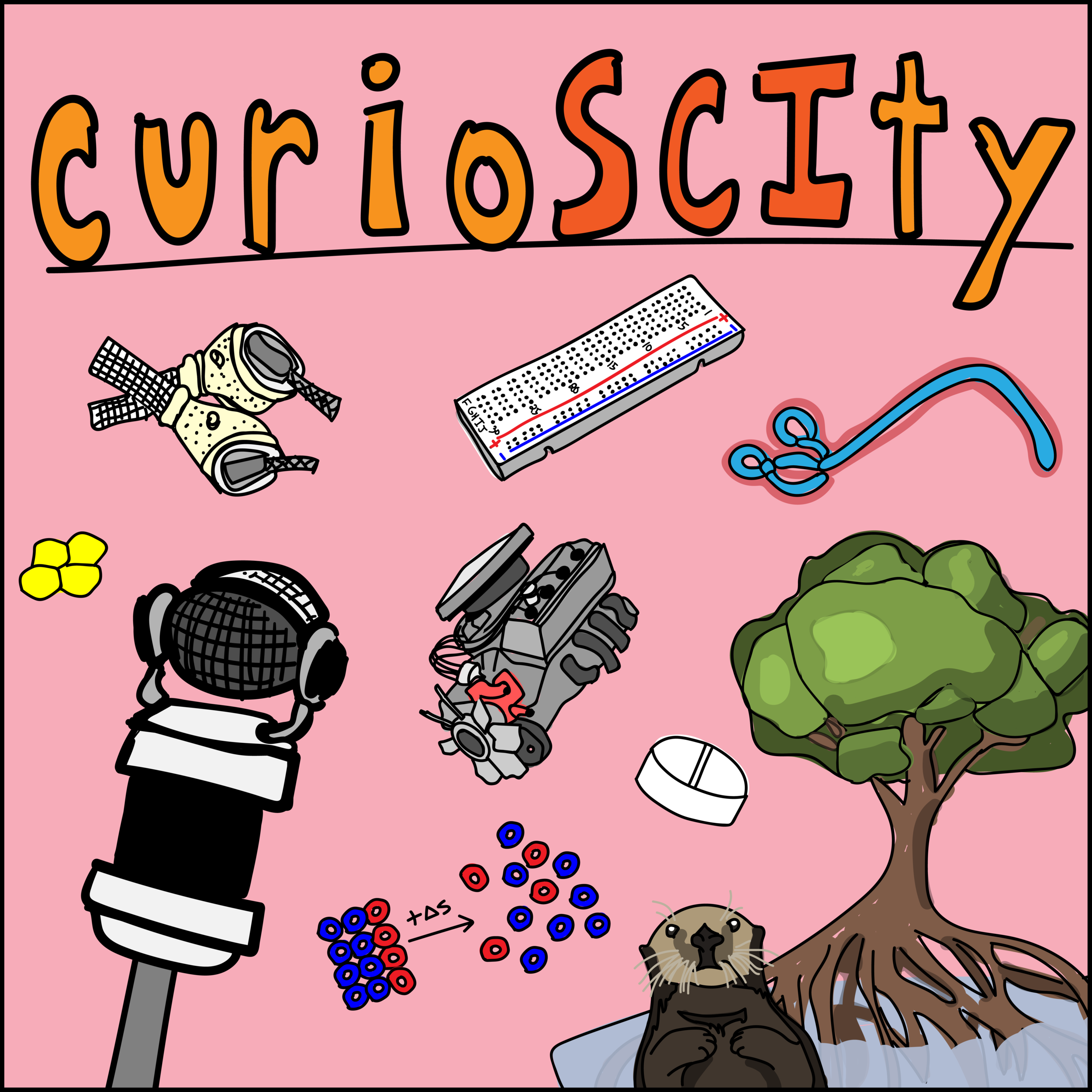Click on the guest’s image to examine the episode’s citations. Click here to find Curioscity on a variety of different services, including Apple Podcasts, Google Podcasts, Stitcher, and more.
2021 - Season 3
Eric Everett, Ph. D., is the Director of Research Integrity, Ethics and Education and Professor in the Adams School of Dentistry at The University of North Carolina at Chapel Hill.
To maintain an open and rigorous basis for scientific discovery, there must be firm rules and understandings about academic dishonesty. What are some different forms of academic dishonesty and why would they occur?
Sabastine Eugene Arthur, Ph. D., is a Postdoctoral Fellow at The University of North Carolina at Chapel Hill.
Science is a global effort undertaken by individuals of vastly different backgrounds. What inspires someone to be a scientist? How different can each person’s path be?
Matt Vogt, MD., Ph. D., is an Assistant Professor in Pediatric Infectious Diseases and Microbiology & Immunology at The University of North Carolina at Chapel Hill.
This podcast has previously discussed enteroviruses that are not poliovirus, but we haven’t had the chance to delve into clinical presentations of infection. What is acute flaccid myelitis? Why is it relevant for human health across the globe?
David Aponte-Díaz is a graduate student in Microbiology & Immunology at The University of North Carolina at Chapel Hill.
This show has talked about organelles, cell culture, and organs themselves. Today, we discuss a new technique to be able to study a variety of medically relevant scientific topics. What are organoids?
Molly Rathbun, M.P.S., is a Ph. D. candidate in Biochemistry, Microbiology, and Molecular Biology at The Pennsylvania State University. This was her fourth appearance!
Sometimes it’s hard to define philosophical concepts scientifically; often it’s troubling to consider science philosophically. Today we’ll talk about consciousness and how Homo sapien sapiens fit into the kingdom of animalia and beyond.
Molly Rathbun, M.P.S., is a Ph. D. candidate in Biochemistry, Microbiology, and Molecular Biology at The Pennsylvania State University. This was her third appearance!
Sometimes it’s hard to define philosophical concepts scientifically; often it’s troubling to consider science philosophically. Today we’ll talk about consciousness and how Homo sapien sapiens fit into the kingdom of animalia and beyond.
Pat Faughnan, M.S., is a Ph. D. candidate in Biochemistry and Molecular Genetics at The University of Virginia. This was his second appearance!
In 2020, approximately 1.8 million people will be diagnosed with cancer in the United States alone. Last time, we discussed the basic foundations of cancer. Today, we talk about gene products responsible for reducing the prevalence of cancer and the consequences of missing those gene products.
Rachel Kruger is an M.S. candidate in Biological Sciences at The State University of New York at Binghamton. This was her sixth appearance!
What’s in a name? Would that which we call a rose by any other name smell as sweet? Maybe. But what we call groups of organisms is about more than just a catchy title; studying speciation gives us greater insight into how evolution and biodiversity exist in our world.
Aaron Griffing, M.S., is a Ph. D. candidate in Biology at Marquette University. This was his third appearance!
After a couple of weeks of virology and immunology, it’s time to step back into the world of organismal biology. What is a lizard? What is a squamate? What is some of their evolutionary history?
Brianne Barker, Ph. D., is a Associate Professor of Biology at Drew University. This was her fourth appearance!
Last week we discussed vaccines at a 50,000 foot perspective, but today we focus on vaccines for one pathogen: SARS-CoV-2.
Brianne Barker, Ph. D., is a Associate Professor of Biology at Drew University. This was her third appearance!
Oh boy, another nail biter! Today, we have to discuss the topic of vaccines. Are vaccines effective? If so, at what? Are they safe? Of course, to all of those questions, but still.












